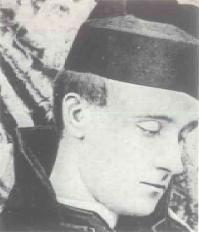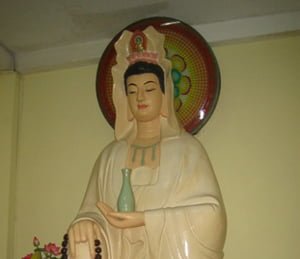
Having learned of my obsession, as a young man, with Gabriele d'Annunzio, my best friend at the time - an especially literary type - asked me casually if I was also a fan of Baron Corvo. I confessed that I had never heard of him, and she said "Oh, but you must read The Quest for Corvo - you will love it!" And so began my love affair with the wonderfully eccentric Baron Corvo and his crazy writings.
Of course, part of any love for Corvo normally rests with A. J. A. Symons' enthralling literary detective story The Quest for Corvo. I don't think there has ever been another book like it, and I think it is essential reading for all wannabe writers. Symons documents a literary obsession in a way that is hilarious, compelling and quite unique. In some ways he's a better author than Corvo ever was, but he only wrote one book of substance (this one), and it is so entirely convincing that most readers transfer their affection entirely to the book's subject, Baron Corvo.
Corvo was a distinctly mad English Catholic, a disgraced priest who lived a singularly destructive lifestyle that described an almost perfect downward spiral. He died penniless and half-starved in Venice, where he lived on the streets and earned his living as a procurer of young men for wealthy British homosexuals on holiday. His journals describe his tortured and entirely insane expatriate existence, surviving on one stale bread-roll a day and seducing gondoliers at night.
Baron Corvo (his title was highly suspect, by the way) wrote an eccentric masterpiece called Hadrian the Seventh, a neurotic revenge-fantasy in which a misunderstood English priest is, against all odds, declared the next Pope, and goes about restructuring the Holy City, the papacy and the Church. It is similar in many ways to Huysmans' A Rebours, or De Quincey at his best, and Corvo (real name Frederick Rolfe - he liked to shorten the Frederick to "Fr." so people might mistake him for a priest) had an impeccable eye for style and detail. The book is unique in that it lampoons, slanders and vilifies almost everyone that Corvo had ever met in his adult life, barely making any effort to disguise his victims.
He also wrote a fascinating - though really peculiar - psycho-sexual love story set in Venice called The Desire and Pursuit of the Whole, a kind of dark version of Pygmalion which was again highly autobiographical, though the beloved object was morphed into a, much less scandalous, androgynous young girl.
Corvo is another obvious object of literary cultishness - he was so even in the days when Symons wrote his book. His books are still quite obscure and difficult to get, though well worth the expense. Interestingly he was an associate of the Bensons, who I mentioned in my previous post.
What's so attractive about Corvo is the great pathos of his life story. He lived and died for his art, performing quite self-consciously as "an author," writing in public in an enormous ledger with an immensely heavy silver pen. He was a born outcast, and was constitutionally incapable of getting along with anyone - his biography is a long list of obsession, conflict and rejection. He is a quixotic, romantic figure, not at all admirable, but so terrifically devoted to the idea of being a writer that he was willing to die for it. How can you not be inspired by someone like that?


No comments:
Post a Comment